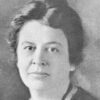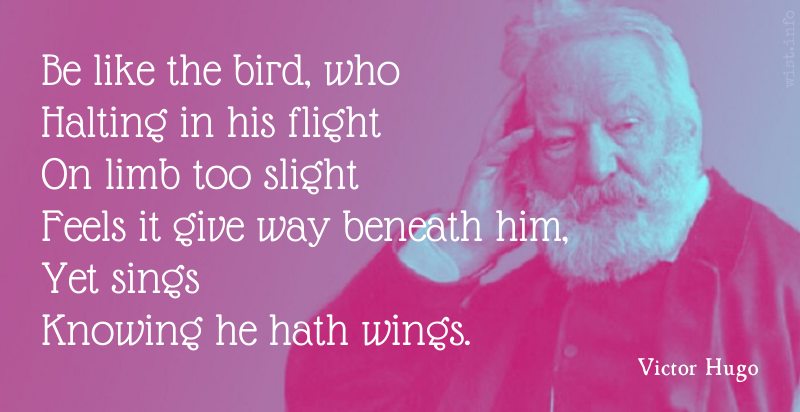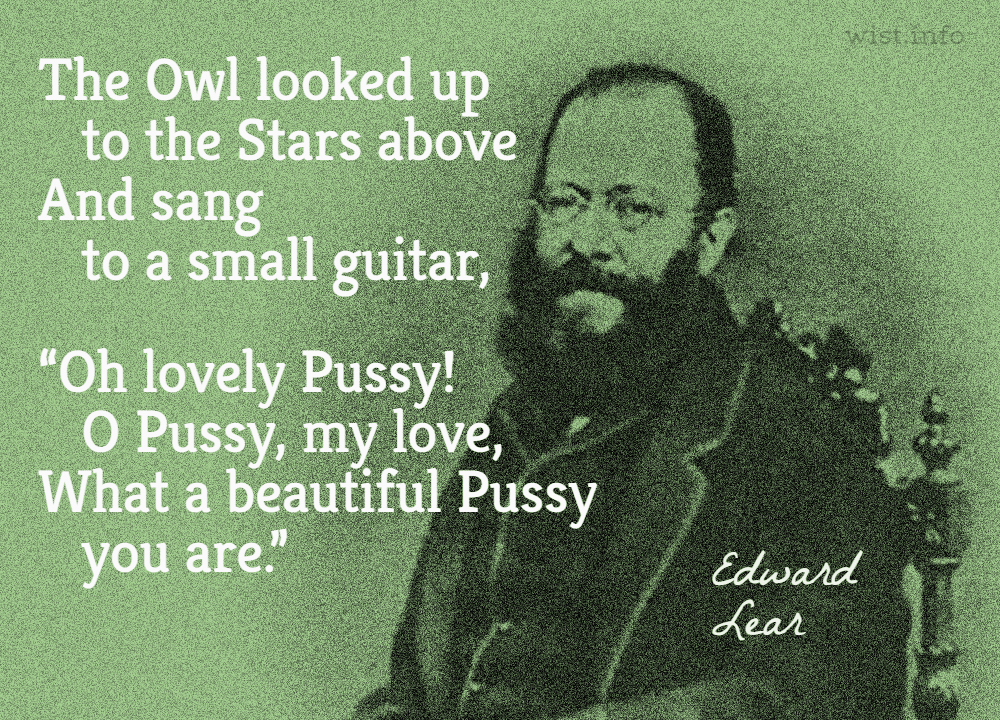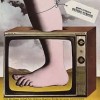Now must I go. The shade of this juniper turns chill.
Shade stunts a crop, and it’s bad for a singer’s voice. My goats,
You have pastured well, the twilight deepens — home then, home!
[Surgamus; solet esse gravis cantantibus umbra;
iuniperi gravis umbra; nocent et frugibus umbrae.
Ite domum saturae, venit Hesperus, ite capellae.]Virgil (70-19 BC) Roman poet [b. Publius Vergilius Maro; also Vergil]
Eclogues [Eclogae, Bucolics, Pastorals], No. 10 “Gallus,” l. 75ff (10.75-77), closing lines (42-38 BC) [tr. Day Lewis (1963)]
(Source)
(Source (Latin)). Alternate translations:
Let us arise; shades oft hurt those who sing;
Juniper shades are to our fruit a foe,
The Evening comes, goe home, my fed Kids, goe.
[tr. Ogilby (1649)]
Now let us rise, for hoarseness oft invades
The Singer's Voice, who sings beneath the Shades.
From Juniper, unwholesome Dews distill,
That blast the sooty Corn; the with'ring Herbage kill;
Away, my Goats, away: for you have browz'd your fill.
[tr. Dryden (1709), l. 110ff]
Rise we; shades, e'en of juniper, annoy
The minstrel choir, the ripening grain destroy:
Goats, from your pastures sated, homeward hie --
See, where bright Hesper fires the evening sky!
[tr. Wrangham (1830), l. 81ff]
Let us arise: the shade is wont to prove noxious to singers; the juniper's shade now grows noxious; the shades are hurtful even to the corn. Go home, the evening star arises, my full-fed goats, go home.
[tr. Davidson (1854)]
I rise. The shadows are the singer's bane:
Baneful the shadow of the juniper.
E'en the flocks like not shadow. Go -- the star
Of morning breaks -- go home, my full-fed sheep.
[tr. Calverley (c. 1871)]
Let us rise: shade is often dangerous to those who sit and sing; there is danger in the juniper's shade: why, shade hurts the crops too. Go home, the evening star is rising: my well-fed goats, go home.
[tr. Wilkins (1873)]
Now, enemy to vine and fruit,
The dews descend; the shadows fall
And homeward flocks and shepherds call.
[tr. King (1882), ll. 1018ff]
But let us rise, for never voice was made,
Nor verse, more tuneful by a chilling shade,
To man distasteful and the ripening field:
Such, even junipers at nightfall yield.
Now pales the latest crimson of the West:
Gather yon batten'd herd, I bring the rest;
And then wind homeward in the dying light;
Homeward my goats, for Hesperus is bright.
[tr. Palmer (1883)]
Come, let us rise: the shade is wont to be
baneful to singers; baneful is the shade
cast by the juniper, crops sicken too
in shade. Now homeward, having fed your fill --
eve's star is rising -- go, my she-goats, go.
[tr. Greenough (1895)]
Let us arise: the shade is wont to prove hurtful to singers; the juniper’s shade now grows noxious; the shades are damaging even to the crops. Go home, my full-fed goats; the evening star arises, go home.
[tr. Bryce (1897)]
Let us arise; the shade is wont to be heavy on singers: the juniper shade is heavy: shade too hurts the corn. Go home full-fed, the Evening Star comes, go, my she-goats.
[tr. Mackail (1899)]
Now let us rise; for singers it is ill
To linger in the shade—to the young corn
The junipers' deep shadow worketh harm;
The evening star shines forth -- now go, my goats,
Ye may return, full fed, towards your home.
[tr. Mackail/Cardew (1908)]
But let us go!
The darkness of the night works hurtful change
Upon a shepherd's voice; the junipers
Love not the darkness, and the ripening fields
Thrive not in shadow. Home ye mother-goats!
Run home full-fed! Behold the evening-star!
[tr. Williams (1915)]
Let us arise. The shade is oft perilous to the singer -- perilous the juniper’s shade, hurtful the shade even to the crops. Get home, my full-fed goats, get home -- the Evening Star draws on.
[tr. Fairclough (Loeb) (1916)]
Now let us go. The shade is bad for singers. This is a juniper: its shade is bad. Even crops suffer in the shade.
Home with you, goats: you have had your fill. Hesper is coming: home with you.
[tr. Rieu (1949)]
Now let us rise, the shade can be harmful to singers;
A juniper shade not only menaces mortals
But crops wilt under it. Turn, my goats, from feasting,
Come, for the Star of Evening glimmers, come home now.
[tr. Johnson (1960)]
Let's go then, friend.
This shade is bad for poetry. Our throats
are dry. Let's go home." In such a way,
I'd bring the pastoral to its natural end.
We could go together, herding the fucking goats.
[tr. Slavitt (1971)]
Now we must go; the shade's not good for singers,
The juniper shade's unwholesome; unwholesome too
For the plants that need the sunshine is the shade.
Go home, my full-fed goats, you've eaten your fill,
The Evening Star is rising; it's time to go home.
[tr. Ferry (1999)]
Let’s rise, the shade’s often harmful to singers,
the juniper’s shade is harmful, and shade hurts the harvest.
Hesperus is here, home you sated goats: go home.
[tr. Kline (2001)]
Quotations about:
singing
Note not all quotations have been tagged, so Search may find additional quotes on this topic.
The mocking bird is music-mad to-night,
He thinks the stars are notes;
That he must sing each spattered star, and be
A choir of many throats.The earth is his cathedral, and its dome
Is all the light-pricked sky;
The pear-tree is his choir loft, and there
He flings his mad songs high.
Be like the bird, who
Halting in his flight
On limb too slight
Feels it give way beneath him,
Yet sings
Knowing he hath wings.[Soyez comme l’oiseau, posé pour un instant
Sur des rameaux trop frêles,
Qui sent ployer la branche et qui chante pourtant,
Sachant qu’il a des ailes!]Victor Hugo (1802-1885) French writer
“In the Church of *** [Dans l’eglise de ***],” Songs of Dusk [Les chants du crepuscule], #33 sec. 6 (1836)
(Source)
Full French poem. Alternate translations:
Be like the bird that, on a bough too frail
To bear him, gaily sings!
He carols -- thought he slender branches fail:
He knows that he has wings.
[Source]
Be like the bird that seeks its short repose
And dauntless sings
Upon that bending twig, because it knows
That it has wings.
[Source]
Be like that bird, that halting in her flight
A while on boughs too slight;
Feels them give way beneath her,
And yet sings, yet sings,
Knowing that she hath wings.
[Laura Sedgwick Collins, 1890s song, "Be Like That Bird"]
Thou art like the bird
That alights and sings
Though the frail spray bends --
For he knows he has wings.
[tr. Kemble (Butler)]
Be as a bird that --
Pausing in its flight --
Alights upon a branch too slight
And feeling that it bends beneath it
Sings -- knowing it has wings.
[Source]
I believe in kindness. Also in mischief. Also in singing, especially when singing is not necessarily prescribed.
Love, I find is like singing. Everybody can do enough to satisfy themselves, though it may not impress the neighbors as being very much.
Zora Neale Hurston (1891-1960) American writer, folklorist, anthropologist
Dust Tracks on a Road, ch. 14 “Love” (1942)
(Source)
MINSTREL: [singing]
He was not in the least bit scared to be mashed into a pulp,
Or to have his eyes gouged out and his elbows broken,
To have his kneecaps split and his body burned away,
And his limbs all hacked and mangled, brave Sir Robin!
His head smashed in, and his heart cut out,
And his liver removed, and his bowels unplugged,
And his nostrils raped, and his bottom burnt off,
And his penis —SIR ROBIN: That’s enough music for now, lads.
Who loves not wine, women, and song
Remains a fool his whole life long.[Wer nicht liebt Weib, Wein und Gesang,
A Der bleibt ein Narr sein Leben lang.]
Let us go singing as far as we go: the road will be less tedious.
[Cantantes licet usque (minus via laedit) eamus.]
Virgil (70-19 BC) Roman poet [b. Publius Vergilius Maro; also Vergil]
Eclogues [Eclogae, Bucolics, Pastorals], No. 9 “Lycidas and Moeris,” l. 64ff (9.64) [Lycidas] (42-38 BC)
(Source)
(Source (Latin)). Alternate translations:
Singing lets goe, the way shall better please.
[tr. Ogilby (1649)]
A Song will help the beating Storm to bear.
[tr. Dryden (1709), l. 89]
Light song will ease the road of half its care.
[tr. Wrangham (1830), l. 76]
Yet we may still go on singing; the way will be less tedious.
[tr. Davidson (1854)]
Singing let us journey on --
(The way will seem less tedious).
[tr. Calverley (c. 1871)]
We may as well sing -- it makes the journey less irksome.
[tr. Wilkins (1873)]
Move on, and should the way seem long,
Shorten the distance with a song.
[tr. King (1882), ll. 915-916]
Walk on, and make
The road less tedious with our verse.
[tr. Palmer (1883)]
Then singing let us go,
our way to lighten.
[tr. Greenough (1895)]
Let us go on still singing; the way is less tedious.
[tr. Bryce (1897)]
We may go singing all the way, and the road weary us the less.
[tr. Mackail (1899)]
Let us go singing to beguile our way.
[tr. Mackail/Cardew (1908)]
Let us go forward singing, for the path
Tires us less so.
[tr. Williams (1915)]
We may yet go singing on our way -- it makes the road less irksome.
[tr. Fairclough (Loeb) (1916)]
Let us sing carols all the way: 'twill be
Less tedious.
[tr. Royds (1922)]
Why not go forward singing all the way? It makes the going easier.
[tr. Rieu (1949)]
We still may sing as we go and lighten the journey.
[tr. Johnson (1960)]
We can press on,
Singing as we go: a song lightens a long road.
[tr. Day Lewis (1963), ll. 63-64]
Let's keep on going, but singing as we go.
Sing makes the journey easier.
[tr. Ferry (1999)]
We might go along singing (the road will be less tedious).
[tr. Kline (2001)]
There is more in you of good than you know, child of the kindly West. Some courage and some wisdom, blended in measure. If more of us valued food and cheer and song above hoarded gold, it would be a merrier world.
J.R.R. Tolkien (1892-1973) English writer, fabulist, philologist, academic [John Ronald Reuel Tolkien]
The Hobbit, ch. 18 “The Return Journey” [Thorin] (1937)
(Source)
The Lord respects me when I work,
But He loves me when I sing.Rabindranath Tagore (1861-1941) Indian Bengali poet, philosopher [a.k.a. Rabi Thakur, Kabiguru]
“Fireflies” (1926)
(Source)
Alt. trans.:
"God honours me when I work,
He loves me when I sing."
Written down like this, it doesn’t seem a very good song, but coming through pale fawn fluff at about half-past eleven on a very sunny morning, it seemed to Pooh to be one of the best songs he had ever sung. So he went on singing it.
A. A. Milne (1882-1956) English poet and playwright [Alan Alexander Milne]
House at Pooh Corner, ch. 4 “Tiggers Don’t Climb Trees” (1928)
(Source)













